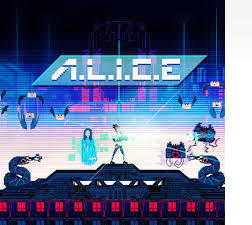

JCM Design

JCM Design
Educational Games

A.L.I.C.E. (Artificial Learning Intelligence for Centralised
Education)
Researchers at the University of New South Wales (UNSW) in Australia have developed Artificial Learning Intelligence for Centralized Education (ALICE), an app that uses 1980s-style arcade games to help users navigate a range of cybersecurity scenarios with the goal of recovering stolen identities. ALICE users navigate "the network," trying to outsmart viruses, beating attack malware, and warding off phishing attacks on their social media accounts. In addition, players can get assistance from an artificial intelligence system built for centralized education. The app was developed to raise awareness of the most common security threats to UNSW students. "As we spend more and more time online, our digital footprint and online presence relate directly to our personal identity," says UNSW's Kamer Nizamdeen. "If it's not carefully protected we can be left vulnerable and open to theft." The program is based on gamification theory, which brings game design elements and principles to learning situations. Try it now! https://play.google.com/store/apps/details?id=com.S1T2.UNSWCyber https://itunes.apple.com/au/app/a-l-i-c-e/id1308819837?mt=8BioBlox2D
BioBlox2D is the result of a collaboration between researchers at Imperial College London and Goldsmiths, University of London. It turns the science of how proteins fit together (or ‘dock’) with smaller molecules, such as medicines and vitamins, into a Tetris-style puzzle game and quiz. Players manipulate and dock molecules into proteins to score points and earn bonus powers in a race against time. How molecules dock onto proteins is the key to understanding processes in the cell, and in particular to designing new drugs to treat conditions such as cancer and Alzheimer’s. The complex 3D forms of such molecules – resembling the bumpy surface of an asteroid full of pits and craters – make understanding how they fit together extremely challenging. Try it now! https://itunes.apple.com/us/app/bioblox-2d/id1236159172 https://play.google.com/store/apps/details?id=com.ElioFede.Bioblox2Eyewire
Approximately a quarter-million gamers helped Princeton researchers create and share detailed maps of more than 1,000 neurons using an online crowdsourced collaborative learning gaming platform for the citizen scientists to create data sets. Eyewire pairs machine learning with gamers who trace the twisting and branching paths of each neuron. Humans are better at visually identifying the patterns of neurons, so every player’s moves are recorded and checked against each other by advanced players and Eyewire staffers, as well as by software that is improving its own pattern recognition skills. Try it Now! https://eyewire.org/explore

JCM Design

JCM Design



